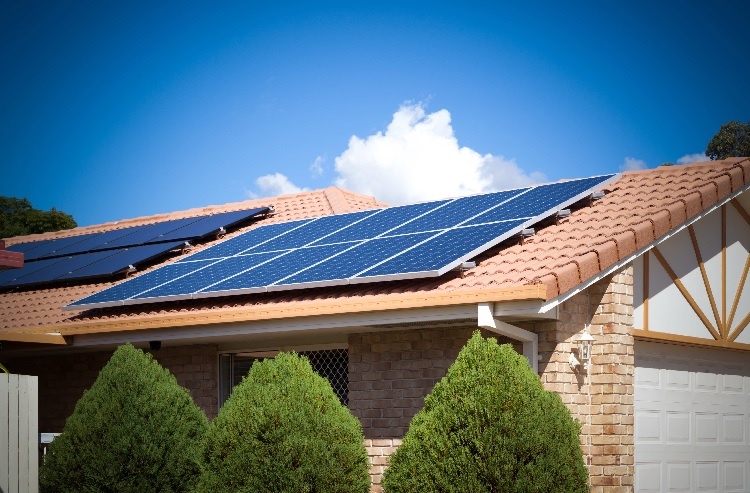Suggestions to address draft power plan shortcomings
 |
| 1564 Suggestions to address draft power plan shortcomings |
By Nguyen Thi Hang - Coordinator, Vietnam Sustainable Energy Alliance
The Vietnam Sustainable Energy Alliance (VSEA) sent its fourth recommendation for comments on the draft report of the Ministry of Industry and Trade and the draft decision of the prime minister approving the National Power Development Plan VIII (PDP8) for 2021-2030, with a vision towards 2045. Following the development and adjustment of the PDP, we noticed the planning process attracted the attention of society. The draft PDP was carefully prepared with many consultations, explanations, and revisions, so as of now there are several differences compared to the version from March.
PDP8 now aims to reduce total power capacity in both phases of the planning period and strengthen control and monitor the implementation of the plan. Moreover, the new draft expresses the views and prioritises goals for the development of renewable energy, especially distributed renewable energy sources, as well as aims to maximise any given region’s demand for self-balance to minimise long-distance grid transmission.
 |
However, some major problems that experts, scientists, investors and the public are particularly concerned with, which have been gathered by the VSEA over the past three occasions, have yet to be resolved.
Further, this draft shows backward steps as it lists increases of about 3,000MW for coal power and a reduction of about 8,000MW of renewable energies by 2030, while the roadmap for the retail energy market remains unclear and the resource arrangement to implement the plan, especially the investment capital, is unconvincing.
The draft even partly goes against the main perspective identified in Resolution No.55/NQ-TW from 2020 on Vietnam’s national energy development strategy to 2030. It said that the goal shall be to “quickly build a synchronous, competitive, and transparent energy market, diversify forms of ownership and business methods; and apply market prices to all types of energy”.
Further, Resolution 55 states that efforts should be made “to encourage and create all favourable conditions for all economic sectors, especially the private sector, to participate in energy development; and eliminate all types and forms of subsidies, monopolies, unequal competition, and lack of transparency in the energy industry.”
Keeping traditional power sources for the current grid only aims to ensure the stability of the power system, but it loses the opportunity to catch up and integrate, as well as create momentum for an advanced energy economy and a green national development.
The VSEA wants to express insistence with the previous comments and continues to make recommendations in accordance with the situation and new development requirements. There are several comments on the draft PDP to be noted.
It should be consistent with the path of renewable energy development, to avoid being hindered by recent obstacles. Instead of greatly reducing renewable energy, increasing the risk of pollution and its many consequences by using coal power, it is necessary to prioritise policies to create an ecosystem for sustainable renewable energy development with increasingly competitive costs.
Only when there is a clear retail electricity roadmap with synchronous mechanisms and policies, can the new industry develop and modern technology get applied, which means that domestic enterprises can provide more services and make important contributions to the national energy security strategy.
Moreover, coal power projects that have low feasibility, are not supported by localities, and have difficulty in financing (equivalent to about 16,400MW) need to be carefully reviewed, and alternative options should be prepared.
The alternatives that we propose include floating solar power combined with existing hydroelectric plants, as well as accelerated wind power, distributed solar power, and developing a combined model of solar and wind power with agriculture and fisheries, in combination with implementing programmes of cleaner production and economical and efficient use of energy sources.
In order to facilitate efficient utilisation of renewable energy sources, the PDP should introduce solutions to encourage the private sector to invest in the power grid and immediately consider researching the storage of batteries that do not harm the environment. Storage technology is getting cheaper, and it is necessary to have favourable policies combined with the world’s most advanced technologies, so that the combination of renewable energy and storage at all scales can ensure the future operation of the electricity industry.
The draft PDP8 needs to continue to clarify two key issues to ensure its feasibility when being implemented. The first is the allocation of capital sources and basic orientation of investment capital divergence to implement the plan. Second, there should be a roadmap towards a retail electricity market according to Resolution 55, with a progress tracker for completing the national and regional power transmission network to implement the plan.
What the stars mean:
★ Poor ★ ★ Promising ★★★ Good ★★★★ Very good ★★★★★ Exceptional
Related Contents
Latest News
More News
- Bac Ai Pumped Storage Hydropower Plant to enter peak construction phase (January 27, 2026 | 08:00)
- ASEAN could scale up sustainable aviation fuel by 2050 (January 24, 2026 | 10:19)
- 64,000 hectares of sea allocated for offshore wind surveys (January 22, 2026 | 20:23)
- EVN secures financing for Quang Trach II LNG power plant (January 17, 2026 | 15:55)
- PC1 teams up with DENZAI on regional wind projects (January 16, 2026 | 21:18)
- Innovation and ESG practices drive green transition in the digital era (January 16, 2026 | 16:51)
- Bac Ai hydropower works stay on track despite holiday period (January 16, 2026 | 16:19)
- Fugro extends MoU with PTSC G&S to support offshore wind growth (January 14, 2026 | 15:59)
- Pacifico Energy starts commercial operations at Sunpro Wind Farm in Mekong Delta (January 12, 2026 | 14:01)
- Honda launches electric two-wheeler, expands charging infrastructure (January 12, 2026 | 14:00)

 Tag:
Tag:




















 Mobile Version
Mobile Version